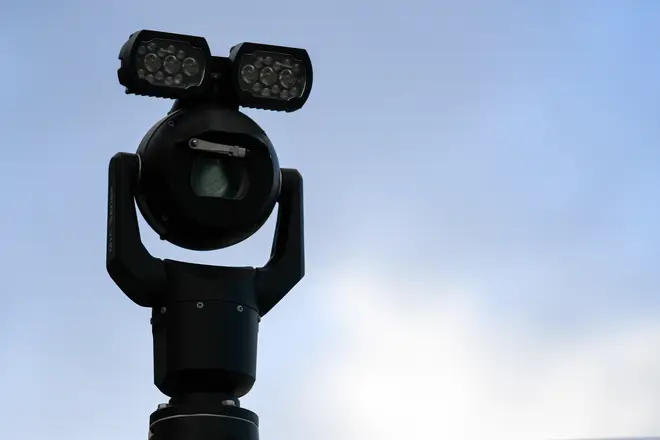
Nick Ferrari 7am - 10am
20 February 2020, 14:00

Police have deployed a facial recognition camera at Oxford Circus today.
The controversial technology was placed in the busy area of central London this morning and will remain there until later this afternoon, the Metropolitan Police told LBC News.
It was mounted in an unmarked van next to a noticeboard warning it was in use.
Campaigners have expressed criticised use of the cameras amid concern they inaccurately flag innocent members of the public as criminals.
It is the second time that officers have used facial recognition in central London, after they were mounted in Stratford earlier this month.
“It’s alarming to see biometric mass surveillance being rolled out in London,” the Big Brother Watch privacy group said.
“Never before have citizens been subjected to identity checks without suspicion, let alone on a mass scale. The 93% misidentification rate poses a serious threat to innocent members of the public. The cost to our liberties, let alone the public purse, is unacceptably high.
“We’re appalled that @SadiqKhan has approved such useless, dangerous & authoritarian surveillance for London. This undemocratic expansion of the surveillance state must be reversed.”
The Met Police told LBC News they plan to continue using them over the coming weeks to catch violent offenders, but said they could not confirm when as they are stationed at short notice.
The cameras were also trialled at Westfield shopping centre in Stratford and in London’s West End.
In September it emerged that a private developer in Kings Cross had used "limited" facial recognition surveillance for three years until March 2019.
Officers claim it has a low failure rate at one false alert per 1,000 times, but a study at the University of Essex last year, based on six trials of the technology, found it achieves just eight out of 42 correct matches.